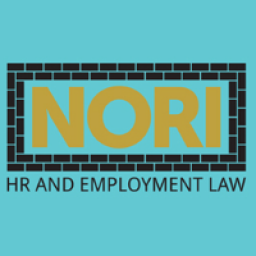Lancashire’s BPC UK Make significant investment in paper recycling
BPC UK has a strong commitment to the environment which means they are always looking for ways to improve their recycling rates and thanks to investment in thei...
BPC UK has a strong commitment to the environment which means they are always looking for ways to improve their recycling rates and thanks to investment in thei...
Lancashire’s largest business support organisation, the NWL Chamber of Commerce, has welcomed experienced R&D Tax specialists, Access2Funding, as their newest P...
Nybble in the community The COVID-19 pandemic has taken a negative toll on many industries over the past year. One of those badly affected has been education,...
 Nybble.co.uk Ltd
Nybble.co.uk Ltd
Most businesses are aware that a lot of hands-on training as been postponed due to the Covid-19 Pandemic, but are you aware of where that leaves you with your l...
 Affiniti Training
Affiniti Training
In 2020, the biggest shake up in Employment Law in the last 40 years took place with the implementation of the Good Work Plan. There are more changes expected t...
 NORI HR & Employment Law
NORI HR & Employment Law
The on-going COVID-19 pandemic has increased the requirement and demand for HR support, in particular around issues including furlough, redundancy, dependence...
 NORI HR & Employment Law
NORI HR & Employment Law
Following on from our blog a few weeks ago regarding the controversial topic of whether employers can mandate the COVID-19 vaccine within the workplace – today we outline key considerations for employers regarding employees wanting to become volunteer vaccinators.
While employers may not wish to stand in the way of employees volunteering to support the nation in its efforts to combat the Covid-19 pandemic, they do need to consider what impact, if any, this will have on their business.
There is no doubt that employees who wish to volunteer in public facing positions will be in close contact with numerous members of the community, increasing the risk of them personally contracting coronavirus. The NHS have stated that all volunteers will undergo training and be provided with supervision and personal protective equipment (PPE) to ensure the safety of staff, volunteers and members of the public. However, this is unlikely to alleviate the risk of infection in its entirety.
What do employers need to take into consideration before permitting employees to become volunteer vaccinators?
Time off for public duties:
Health and Safety:
Working Time Regulations 1998:
Employees who are furloughed:
If you have any questions regarding volunteers in your workplace or the impact of COVID-19 on your business generally, please contact a member of our Employment Team.

Join Our Adoption Information EventAre you considering adoption, or just exploring your options? Our online Adoption Information Events are the perfect place to...
 Caritas Care
Caritas Care
Better Networking Rossendale – Fortnightly Breakfast MeetingsAt the heart of our hometown, the Better Networking Rossendale Hub brings together local business o...
 Better Networking Hub Ltd
Better Networking Hub Ltd
Networking, GB Update and New ConnectionsAs our share platforms have continued to grow, so too have our online meet ups! Join us for our next fortnightly meet...
 GB Shared
GB Shared
Fully Funded Retail Support ProgrammeThanks to a brand new, custom made programme for retailers, ‘Retail Renaissance’ will help transform your retail business w...
 North & Western Lancashire Chamber of Commerce
North & Western Lancashire Chamber of Commerce
It’s Caritas Care Tea Party time!We’re thrilled to invite you to our annual Caritas Care Tea Party at Plungington Community Centre. It’s the perfect excuse to e...
 Caritas Care
Caritas Care
Better Networking Accrington – Monthly Breakfast MeetingsJoin us in the heart of Accrington for our monthly Better Networking breakfast meetings – where local b...
 Better Networking Hub Ltd
Better Networking Hub Ltd